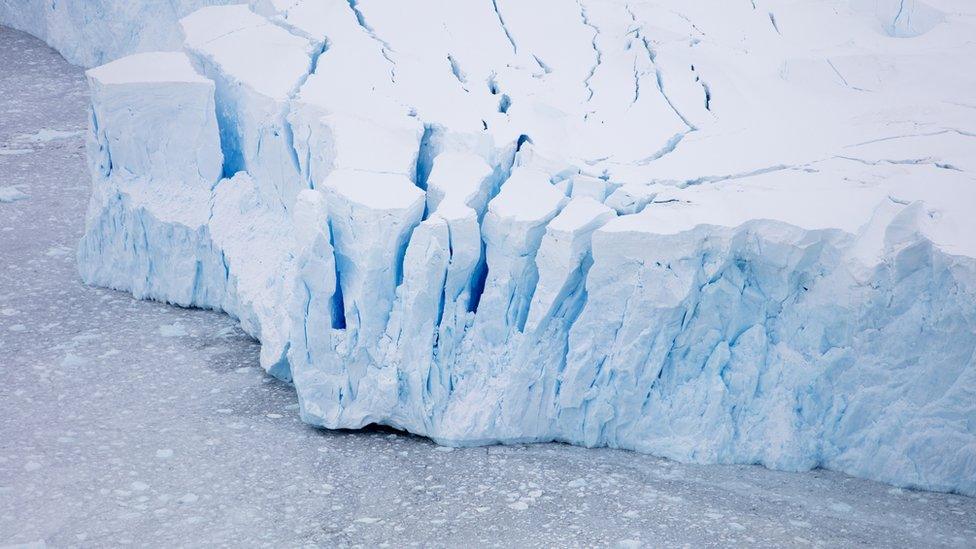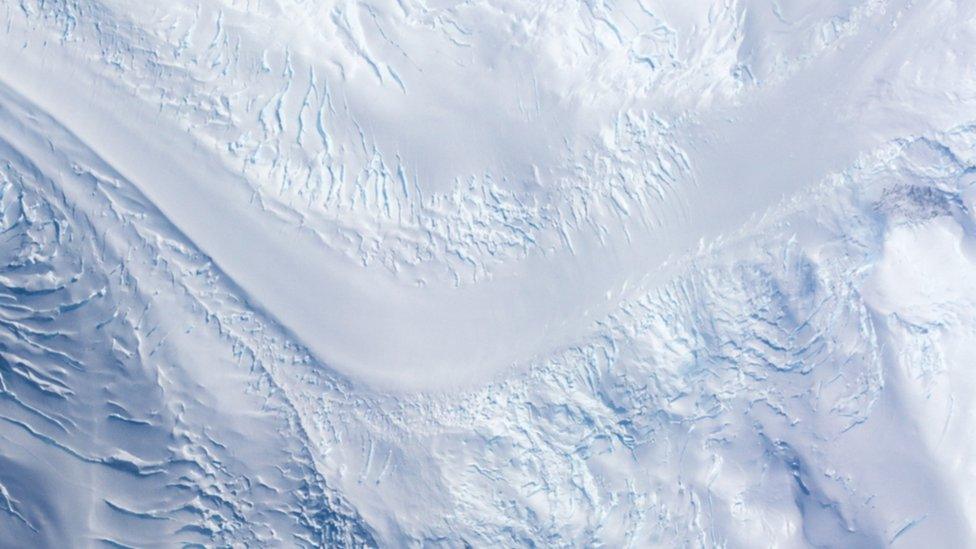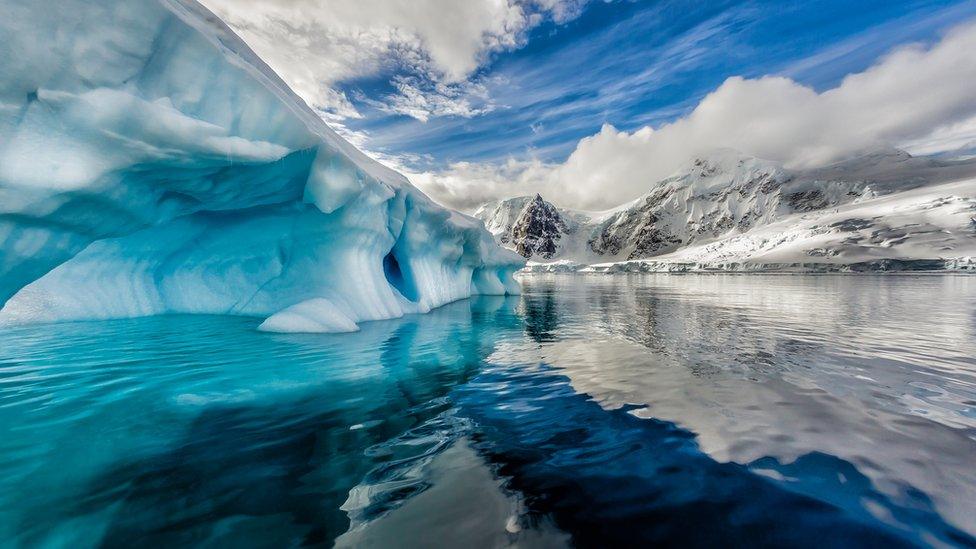Antarctic: Glaciers formed there more than 60 million year ago
- Published
- comments

New research has revealed that glaciers formed in the highest mountains of Antarctica more than 30 million years earlier than scientists had previously thought.
The discovery means that glaciers have been on the continent for at least 60 million years - which is almost as far back as the geological era of the dinosaurs!
The continent of Antarctica is the coldest on Earth with giant sheets of ice covering approximately 98% of the land surface, and for the last 34 million years the glaciers have been the key feature.
Climate change: Why are glaciers and icebergs important?
A study carried out by researchers from The University of Manchester and Manchester Metropolitan University, studied glacial landforms in the Transantarctic Mountains - a 3500km mountain chain that divides East Antarctica and West Antarctica and stretches between the Weddell and Ross Seas.
By making a digital model of the continent using satellite images the team mapped different glaciers and structures and were able to work out how long they had been there for.
By looking at where glaciers form under present-climate conditions, the team were able to identify periods of similar climate in the past and then predict when and where glaciers may have formed.
This kind of research had previously been very challenging or impossible to carry out with glacial deposits having been buried, modified or completely removed either through extensive ice cover or erosion.

Based on this approach, the team discovered that glaciers likely existed in the highest mountains of Antarctica at least 60 million years ago, far earlier than reported by previous studies.
They also noted that the growth of the mountain glaciers is similar to what we see in other mountain ranges, like the Alps, Scandinavia and the Himalayas, despite the climate being up to 20°C warmer than present, when dense sub-tropical forests occupied the continent.
One of the lead researchers, Dr. Matt Tomkins from The University of Manchester, said: "Our work has shed light on a poorly understood period of Antarctic history, revealing the longevity of glaciation of the continent."
Dr Tomkins added the research "also has implications for the future of Antarctic glaciers" and that the human impact of climate change will have an impact on the size of glaciers in the future.
- Published11 February 2018
- Published6 February 2023

